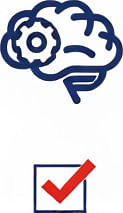Journaling Techniques for ADHD Productivity
 by Lilian Nienow
by Lilian Nienow
Discover how journaling can support individuals with ADHD in building better routines and enhancing focus. This article explores practical methods to make journaling a helpful tool for daily life, promoting organization and self-reflection without added pressure.

Many people with ADHD face challenges in maintaining focus and organizing thoughts. Journaling offers a simple way to address these issues by providing a structured outlet for ideas and tasks. For those with ADHD, this practice can foster better daily habits.
Why Journaling Works for ADHD
Journaling helps break down overwhelming tasks into manageable parts. It allows individuals to capture thoughts quickly, reducing the mental clutter that often builds up. By writing things down, people can gain clarity on their priorities and track progress over time.
One effective method is the daily log. This involves noting key events and feelings at the end of each day. It encourages reflection without demanding perfection, making it accessible for those who might struggle with consistency.
Another approach is using bullet points in journals. This technique keeps entries concise and visual, which can be less intimidating than long paragraphs. For example, listing tasks with checkboxes provides a sense of accomplishment as items are completed.
Getting Started with Journaling
To begin, select a journal that feels inviting, such as one with colorful pages or prompts to spark ideas. Set aside a specific time each day, like right after waking or before bed, to make it a routine. Start small with just a few minutes to avoid frustration.
Incorporate ADHD-friendly tools like timers to keep sessions short and focused. This prevents the activity from becoming another source of stress. Over time, this habit can lead to improved planning and reduced forgetfulness.
Tips for Success
- Use prompts to guide your writing, such as "What went well today?" or "What do I need to remember?"
- Combine journaling with other activities, like drawing sketches, to keep it engaging.
- Review entries weekly to see patterns and celebrate small wins.
- If distractions arise, gently return to the page without self-criticism.
These strategies emphasize patience and self-compassion, recognizing that everyone progresses at their own pace.
Building Long-Term Benefits
As you continue journaling, you may notice enhancements in overall productivity. It becomes a personal space for processing emotions and setting goals, which can boost confidence. Remember, the goal is progress, not perfection, and each entry is a step forward.
In practice, many find that regular journaling leads to better emotional regulation and clearer decision-making. By adapting the method to fit individual needs, it transforms from a simple activity into a powerful ally in managing ADHD.
Ultimately, embracing these techniques can empower individuals to take control of their routines and foster a more balanced life.
